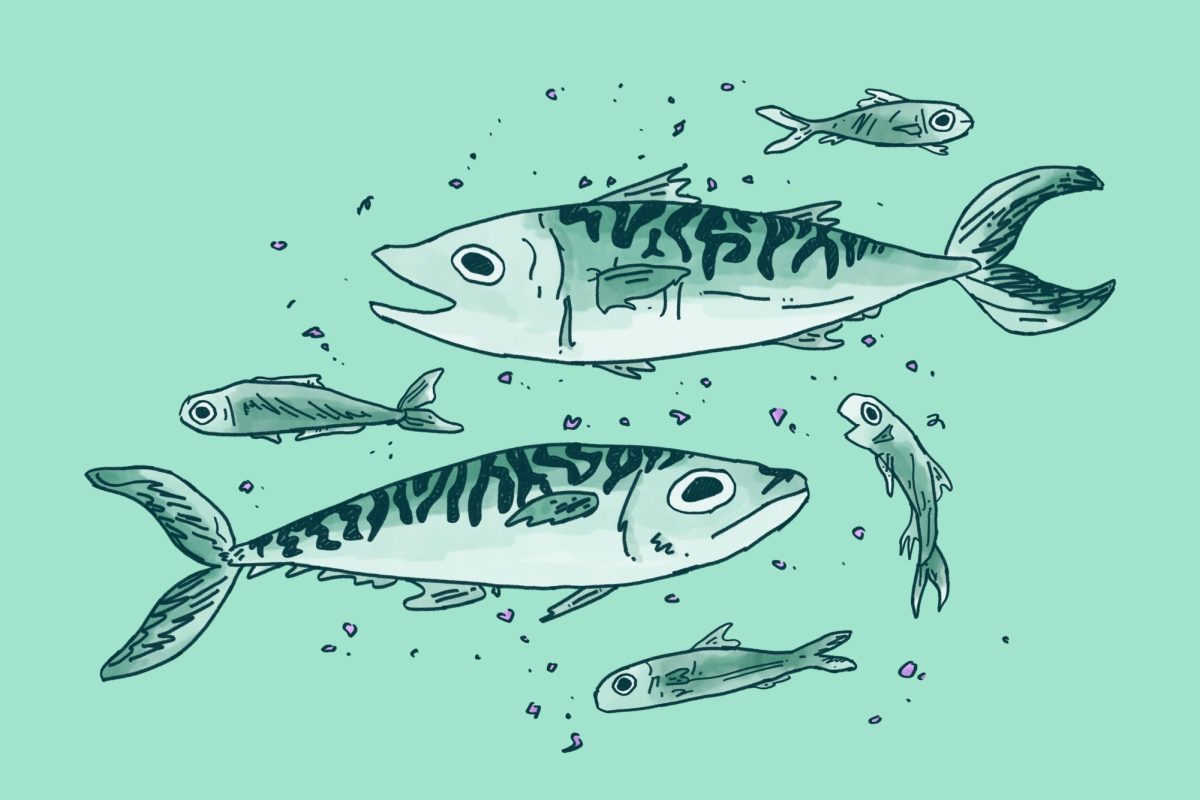When we think of “processed foods,” it’s easy to picture a shiny, oversaturated burger starring in a McDonald’s advertisement—looking too artificial to actually be edible. However, despite the negative connotation we generally associate with the term, processed foods dominate our diets. Walk into any grocery store, and you will find aisles filled with heavily processed prepackaged items. We know that these foods are bad for us—hence the artificial image that comes to mind—yet, we keep eating them, drawn in by convenience and trapped by a society where processed foods are the norm. But is there a bright side to this story? Could processed foods actually be good for us?
Research reveals that the way early humans prepared food played a key role in their evolutionary progress. By using tools to chop, crush, and cook their food before eating, chewing became quicker and easier, resulting in smaller teeth and less strain on the muscles used for chewing. This shift not only made the face smaller, but also saved energy, resulting in the development of bigger brains. Moreover, with less time spent chewing, early humans had more time to develop a spoken language. In this way, processed foods were more than just nutritious; they made humans capable of forming the skills we use today.
However, this early type of “processing” is very different from the processing we see today. Early food preparation used natural methods such as heating, salting, pickling, drying, smoking, and fermenting. These methods kept the food’s original nutrients intact without adding harmful chemicals. On the other hand, modern processing relies on techniques like high pressure processing, refining, and bleaching to preserve food. In addition, preservatives, artificial sweeteners, and colors are added. These methods often strip away nutrients and replace them with unhealthy additives, resulting in foods filled with “empty calories.” These calories provide little to no nutritional value, leaving the body undernourished even when one consumes a lot of food. Having these foods in our diets leads to overeating and health problems like obesity, heart disease, and diabetes. Additionally, these methods’ reliance on mass production contributes to environmental harm, due to increased pollution from factories, depletion of resources, and waste from excessive packaging.
So, a certain amount of food processing is beneficial. However, the modern ways of processing—the “ultra processing” of food—is clearly not. But even after reading this, the chances are that you’ll still reach for processed foods. Why is that? Well, even when we do understand the risks, processed foods continue to be a constant part of our diets. They’re everywhere you go, from grocery stores to vending machines, and they require far less time to prepare than fresh, whole foods. They also store longer, making them seem like a smarter choice for busy households. Additionally, processed foods tend to be cheaper than those that are minimally processed, which are marked up because of their shorter shelf lives and difficult farming methods. These factors can contribute to the impression that eating healthy is impossible.
Furthermore, the food industry profits more from processed foods than whole foods. The industry takes advantage of lower costs and mass produces unhealthy foods, making it even harder for consumers to prioritize health over convenience. This shift toward ultra-processed foods is not an individual’s fault but rather a change driven by many factors over time. A study titled “Ultra processed food consumption among US adults from 2001 to 2018” by Filippa Juul et al. found that the consumption of ultra-processed foods increased from 53.5% of total calories in 2001-2002 to 57% in 2017-2018, while the consumption of whole foods decreased from 32.7% to 27.4% during the same period. Despite growing awareness of the dangers of ultra-processed foods, this increase shows just how deeply embedded the culture of processed foods has become.
Despite the challenges posed by our society—especially for those who are not economically privileged—we must recognize the importance of what we consume, particularly if we have the means to make healthier choices. Just as past behaviors shaped our evolution, we should question whether our current habits are leading us down a path of negative change. However, as you might argue, adopting a completely unprocessed diet is incredibly difficult and overwhelming. This just shows that we need to move away from an all or nothing mindset. Small adjustments, like choosing to prepare a single meal with fresh ingredients or purchasing a healthier alternative to a processed snack, are still significant. By attempting to improve our food choices, we can step away from a diet dominated by ultra processed foods, and instead prioritize our health and our overall well being.






















































































